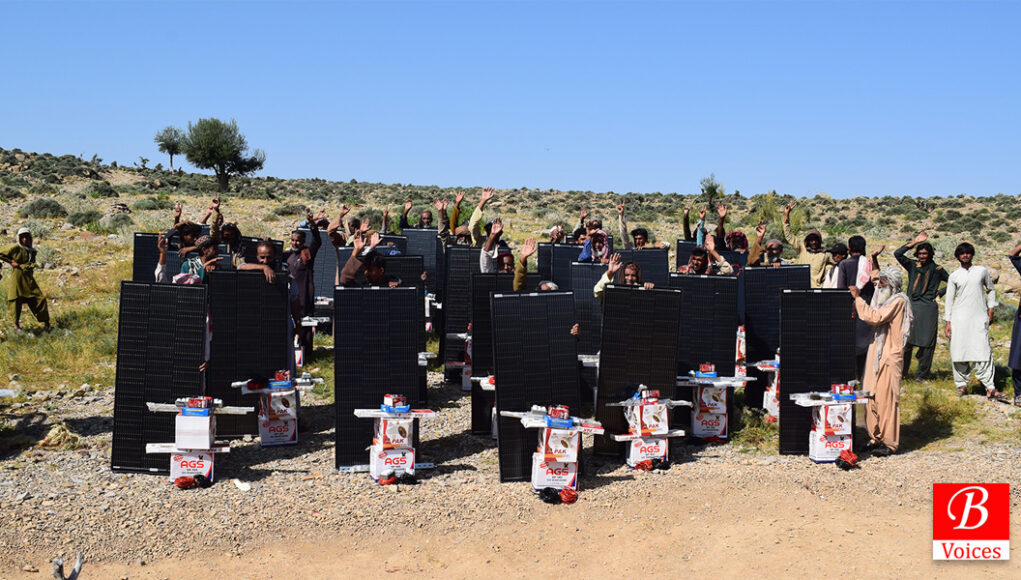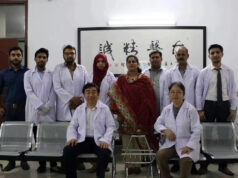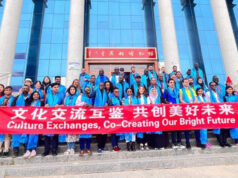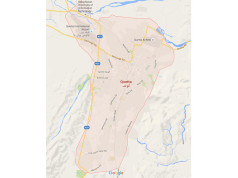Mohammad Waris Shaheen
In the rugged terrain of Balochistan, where remote villages face extreme challenges, a transformative solar energy initiative is rewriting the narrative of resilience and hope. The project, “To Curb Environmental Harm, Contribute to UNSDGs2030 Achievement, and Improve Underprivileged Women and Communities’ Health, Education, and Socio-Economic Equity through Women-Led Rooftop Solar Energy,” addresses critical issues such as lack of electricity, climate change impacts, and socio-economic inequalities. By focusing on sustainable development and women’s empowerment, this initiative illuminates not just homes but also lives.
Villages like Singa, Parpuki, and Heenar, located 60 to 90 kilometers from main roads in Tehsil Aranji, Karkh, and Wadh of District Khuzdar, represent some of the most marginalized communities in Pakistan. These areas face extreme poverty, malnutrition, and lack of basic services such as electricity, healthcare, and clean water. Women and children bear the brunt of these hardships, spending hours fetching unsafe water, often shared with animals, leading to waterborne diseases. Emergency situations are dire, with pregnant women carried on makeshift cots to distant hospitals, often with fatal consequences. Against this backdrop, a solar energy initiative has emerged as a beacon of hope.
Recognizing the severity of these challenges, Health and Rural Development (HARD) Balochistan, a non-profit organization, devised a comprehensive plan to tackle these issues. With funding from the Finnish Association for Nature Conservation – EKOenergy, HARD launched a strategic initiative to promote gender equality, improve access to education and healthcare, and mitigate the impacts of climate change. The project focused on alleviating the burdens faced by women and children, including exposure to hazardous smoke from burning kerosene, dung, and wood.
Through this initiative, rooftop solar systems were installed in 121 households, benefiting 1,429 individuals. Solar-powered water pumps with storage tanks were set up in four villages, providing clean water to 1,622 people. Electrification of five schools and seven health centers impacted over 7,000 individuals. These efforts directly support the UN Sustainable Development Goals, including poverty reduction, gender equality, clean water access, and climate action.
The project’s impact is transformative. Solar energy has relieved women of the arduous task of water collection, enabling them to engage in income-generating activities such as embroidery and tailoring, which have boosted household incomes and elevated women’s roles within their communities. Beneficiaries like Mrs. Sakina, who once spent her days fetching water, now focus on earning and providing education for their children. Electrification has revolutionized education, allowing children like Amina to study comfortably under solar-powered lights, fostering dreams of a brighter future.
Healthcare services have also seen dramatic improvements. Solar-powered health centers now provide round-the-clock services, storing life-saving medicines and reducing maternal and child mortality rates. Dr. Ahmed, a local healthcare worker, emphasized the significance of these changes, noting that emergencies are no longer turned away at night. Solar-powered water pumps have further enhanced community health by providing clean water, reducing waterborne diseases, and improving hygiene.
Youth empowerment has been a vital component of the project. Training programs equipped 35 local youths with skills in solar system installation, repair, and maintenance, enabling them to pursue self-employment or start small businesses. Community members were also trained in the operation and maintenance of solar systems, ensuring long-term sustainability.
The environmental benefits of the project are equally noteworthy. By replacing diesel engines and kerosene lamps with solar energy, carbon emissions have been significantly reduced, aligning with global climate action goals and promoting eco-friendly practices. Local Climate Management Committees, formed through community elections, oversee the maintenance and sustainability of these systems, further strengthening community ownership and advocacy for renewable energy.
With direct benefits to more than 10,000 individuals and indirect benefits to 5,000 more, this initiative exemplifies the transformative potential of renewable energy in addressing poverty, gender inequality, and environmental challenges. As the sun sets over the mountains of Balochistan, it rises on a new era of hope, resilience, and sustainability. This women-led solar energy project is not just illuminating homes; it is transforming lives, paving the way for a brighter, more equitable future.
Disclaimer: Views expressed in this article are those of the writer and Balochistan Voices does not necessarily agree with them.
Share your comments!








